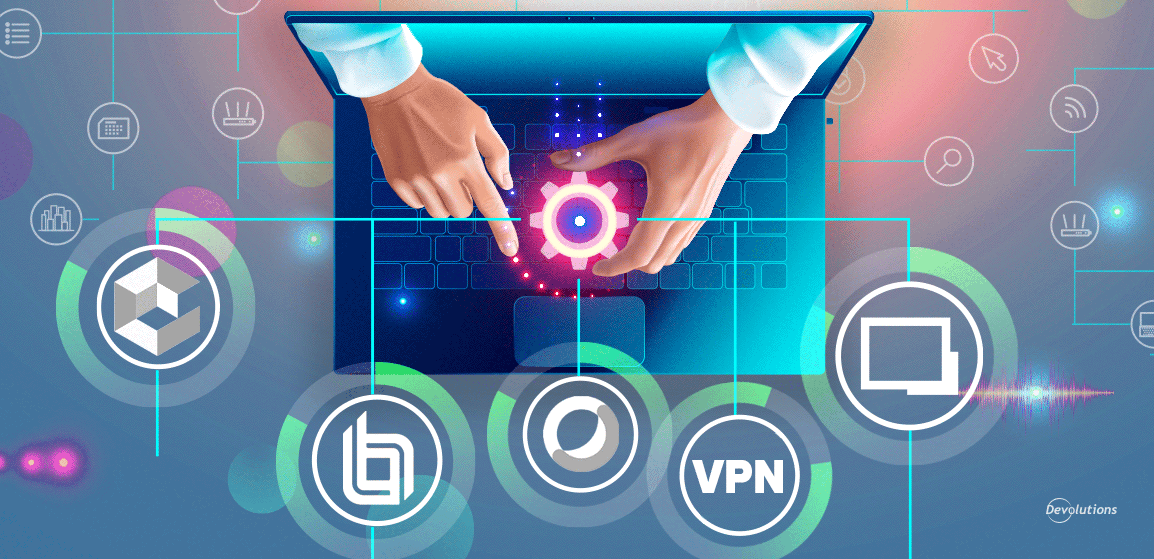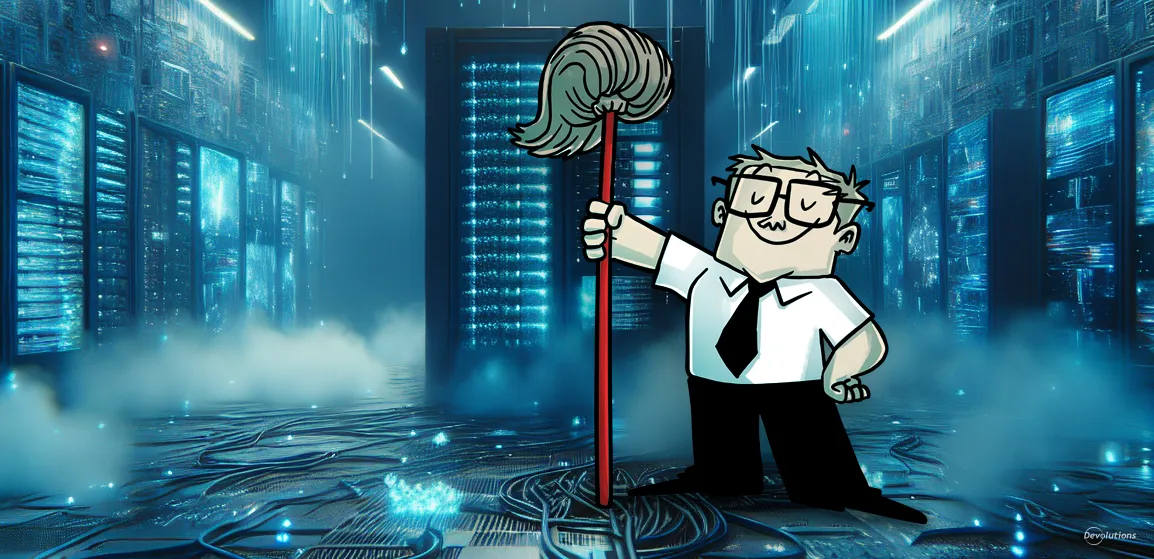The MSP industry is growing rapidly, and is expected to be worth $282 billion by 2023 — up from $193 billion in 2019. Last month we asked you to share your experiences either as an MSP serving clients, or as a business that has partnered/is partnering with an MSP.
As usual, your responses were interesting and insightful. Here’s a rundown of the questions we asked MSPs, followed by the combined responses from all community members:
Which attended and/or unattended remote access technologies (RATs) do you use to connect to your customers on a regular basis?
Answers: Remote Desktop Manager; VPN, Bomgar; Webex.
Do you use a Remote Monitoring and Management (RMM) platform? If so, which one and what has your experience been like?
Answers: Solarwinds N-Central; self-built proprietary platform.
What password/credential management solution do you use to manage your customers’ passwords?
Answers: Self-built proprietary solution; Pleasant Password Server; Bitwarden; CyberArk.
Which other products and/or strategies do you implement to help your customers enhance their cybersecurity?
Answers: Different firewalls; AV; focus on waste, risk and opportunities on regular cadence with business owners; train customers; hire outside specialist help if required.
What are your top 3 challenges as an MSP?
Answers: Keeping customers satisfied; keeping costs low; being proactive; in busy times keeping up with the work while also trying to keep up to date with skills and services; speed to convert and expand services within the customer; acquiring skilled talent; cohesion of tools.
Shifting focus to those of you who have worked with MSPs. Here are some of your experiences and advice for choosing an MSP:
Community member Thomas Higgins shared: “I have never personally worked with an MSP, though I did work at companies that used them. The experience tended to be negative, but I believe that was mostly due to the company using them to cut costs, and they actually expected the service to remain the same or higher at the lower cost. In fact, it was almost always much smaller scope and lower service level agreements to get to the cost they wanted, and the MSP almost always far exceeded them to try and keep them happy (it generally didn't work, but they liked paying less so kept them until they were underbid). As for most important factors, I think I sort of hit on them already. Know what you are getting and more importantly, what you are NOT getting in your SLA. Know what that SLA is and what it means to your business. Finally, of course, cost is a factor.”
Community member Ben Liebowitz shared: “I know at one of my old jobs, they were moving everything to AWS. Anything they deemed legacy’ wouldn't move to AWS, but instead move to a VMware Environment hosted at a small MSP in the mid-west. The one thing that my boss didn't like was that it was on US to manage the VMware infrastructure, even though we didn't own it. So we had to do all of the upgrades, etc.”
Community member Wouter Kursten shared: “Most company's think they can save money by using an MSP which most of the time is false. Using an MSP on the other hand is better though on some sides because you run less risk in case of sickness and such.”
Community member David shared: “I used to work for an MSP but it was not a very good experience, unfortunately. On the other hand it was good learning and I made some very good friends while working there.”
Community member Joel shared: “The most important thing when you choose MSP i would think of knowledge and tool usage. Then price and size.”
Community member Milan Petrovic shared: “What do you think are the most important factors in choosing an MSP? Size and price.”
Community member Gerrit Biesterbosch shared: “Sometimes the experience is great, other time it is less because of communication errors. When choosing a new MSP we ask for references. What are the response times. And of course, costs.”
Community member John Kenny shared: “What do you think are the most important factors in choosing an MSP? Would have to say price would be obvious factor but also another would be to go over contracts before signing to make sure nothing is left out before you sign.”
Community member Germano shared: “I worked with MSPs. I think it has positive points from the moment that the MSP really understands its environment. Some of the MSPs I worked on have a more superficial understanding of it. Which means that with each change of person in the MSP, I have to "teach" again, because not even the documentation generated by the MSP solves it. Or cases that with several members in the MSP are unable to solve a problem, forcing them to escalate the problem, or always trigger the same people. In addition to this point, the fact that you can leave someone thinking for you, or together with you, presenting good ideas on how to improve your environment, and implementing them, helps a lot in everyday life.”
Community member Ron shared: “I work a lot with MSP's on a daily basis and my experiences are both positive as negative. Some MSP's are really good, others are really bad. As a technical ERP consultant, I connect constantly remote to my customers. I use RDM for that (which I absolutely LOVE !), but I notice that a lot of MSP's don't even know what RDM is or they have their own solutions. They also don't always keep track of all the service accounts they hand out and their passwords.”
Thank you to everyone who participated in the poll. We will use your feedback to help us support both MSPs and the businesses that depend on them!
And now, let’s reveal the two randomly selected winners of a $25 Amazon gift card…congratulations to Raymond Jansen and joel! Please email me to claim your prize.
We will be posting the December poll question very soon. Please stay tuned!




